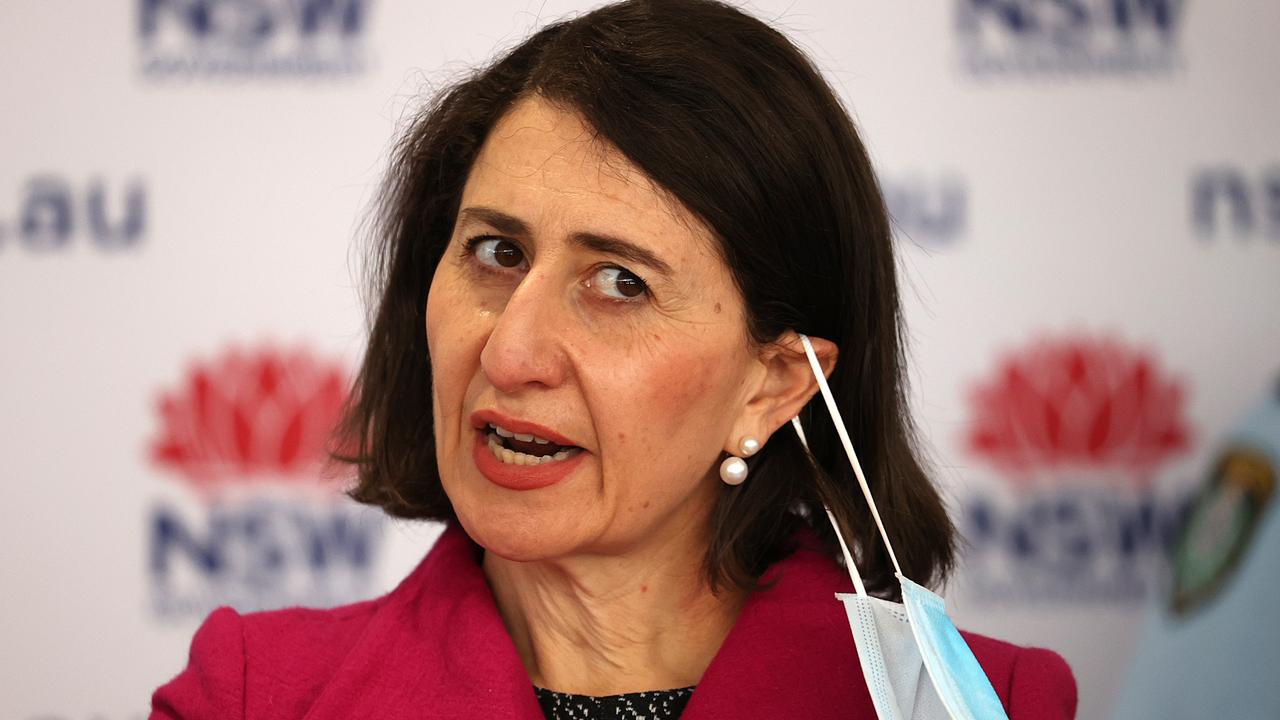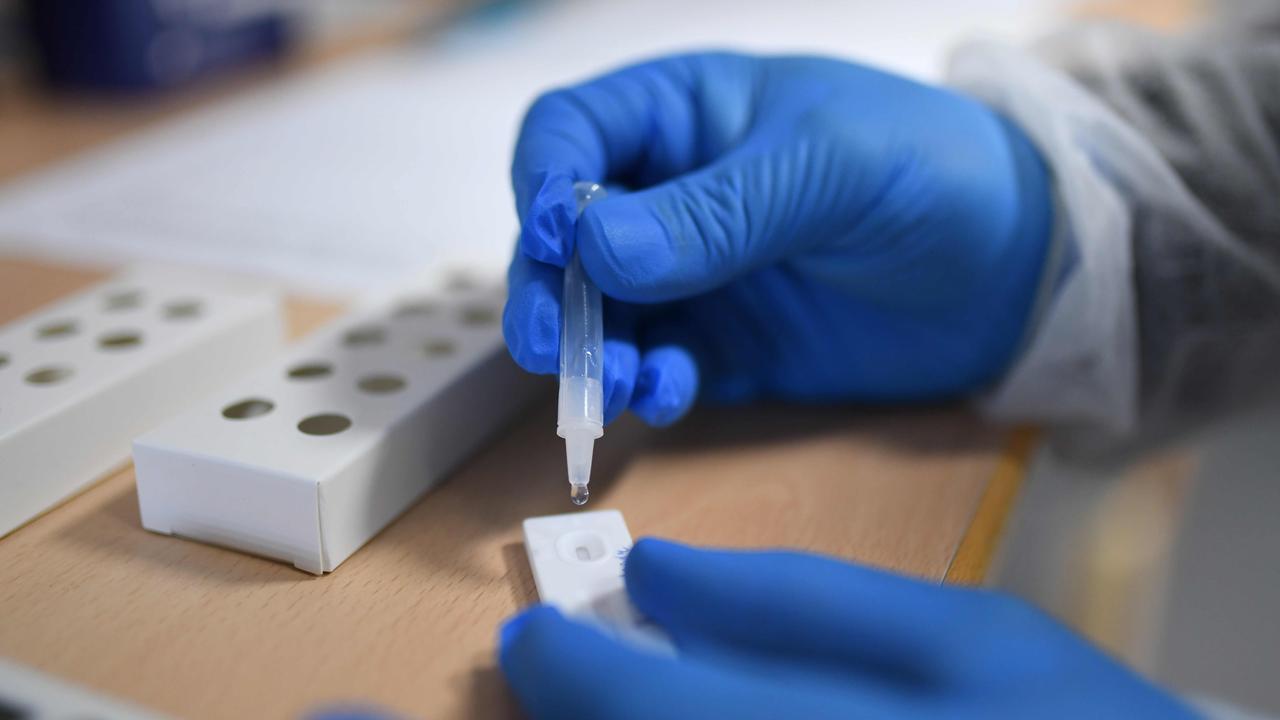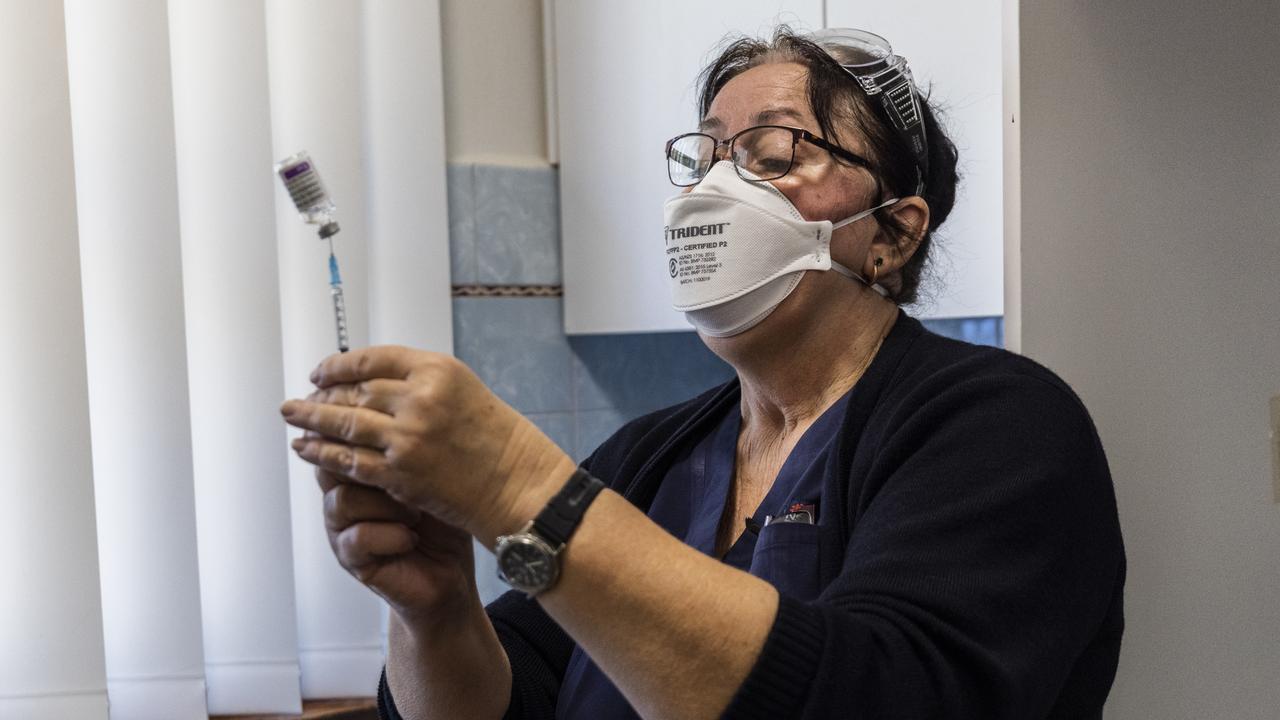NSW’s covid outbreak is not under control and releasing restrictions would be ‘unethical’ and risk creating a ‘super mutant’
NSW needs to change its approach or risk creating a “super mutant” virus it won’t be possible to control, an expert has warned.
If NSW authorities do not change tactics, covid won’t be brought under control and there is a risk of creating a “super mutant” version of the virus.
University of NSW Professor Mary-Louise McLaws, who is an adviser to the World Health Organisation, believes NSW is still not doing enough to get the Greater Sydney outbreak under control.
Despite being in lockdown for more than six weeks, Covid-19 cases continue to rise and there has now been 27 deaths.
On Saturday, a record 319 cases were reported, bringing the total number to 4929 since June 16, when the first case in the most recent outbreak was reported.
“That’s one death every other day,” Prof McLaws said.
“Surely it’s time for authorities to embrace a new method because doing things the same way they’re doing it, is not giving them fast enough results.
“What authorities are relying on right now hasn’t really worked has it?”
RELATED: Five more deaths reported in NSW

Prof McLaws believes one measure should be the introduction of more rapid antigen testing.
NSW has begun using the tests onsite in selected workplaces and schools but Prime Minister Scott Morrison indicated they would likely only play a larger role in the future.
“When you’re in the suppression phase … what is very important is that we need to know who’s tested positive,” he told reporters on Friday.
Antigen testing is not as accurate as the polymerase chain reaction (PCR) currently being used but results are generally available in minutes. Another limitation is that Australia only allows them to be used under supervision of a medical practitioner or a registered health practitioner.
But Prof McLaws believes occupational health and safety officers could be empowered to do the testing at work sites, uploading the results and ringing through any positive cases direct to contact tracers.
“If we are testing every day, we may be able to get them early enough so they don’t take it home, that way we can break that nexus of work transmission that's being taken back to households.”
Tradepeople who were self employed could test themselves.
“We have to start trusting people,” Prof McLaws said.
“To help them understand that this is in their hands, their livelihood is in their hands.
“If they don’t respond to a positive result then their business can go out of business very quickly.”
Tradespeople are already subjected to PCR testing every three days and the antigen testing could be used on the other two days between testing.
RELATED: Australia pleads for more vaccine doses

Prof McLaws said places like the United Kingdom had also given out testing kits to households and this could also help people pick up cases early, especially if they had been socialising.
“The government says antigen testing will be used in the future but how much worse does it have to get?” she said.
“We’ve had nearly 5000 cases in 52 days, that’s nearly 100 cases a day.
“When are the authorities going to think it’s time to start using science to diagnose people faster?
“The future use of these has to be right now.”
Sydney hasn’t had a tough lockdown despite what authorities say
Prof McLaws also supports the introduction of a “ring of steel” around Greater Sydney to stop people leaving the area, and was surprised this had not already been done.
She said a curfew had also been used successfully in Victoria.
“What it does is it stops individuals using the evening to exercise and then visit somebody,” she said.
“It keeps people away from each other and also sends a message that this is really serious.
“That’s why really tough lockdowns work — which we haven’t had in Sydney despite what authorities say — because it sends an early message that we have a problem.”
Prof McLaws also believes the 5km travel limit, which only applies to eight local government areas, should be rolled out across the whole of Greater Sydney.
“We should all be having the same restrictions.”
‘We might make this a super mutant’
Even with more restrictions, Prof McLaws said it was still possible the virus could keep spreading.
“This is just a fit and fast adversary,” she said.
“It’s very hard to keep up so the only other way we can do this, is to improve the vaccination rate.”
But Prof McLaws described NSW’s plan to ease restrictions once 50 per cent of adults had been vaccinated as “unethical” and it could also create conditions for a “super mutant” to emerge.
“By my calculations, it’s not high enough to prevent transmissions — you will see continuous transmission around Australia,” she said.
Even if there are short lockdowns and masks, Prof McLaws is sceptical.
“Has this been working so far? It hasn’t with Delta and this is just one variant of concern,” she said.
“If we don’t get this under control, we might make this a super mutant.”
Prof McLaws said Australia’s population would be particularly vulnerable to a covid mutation because so many people were unvaccinated or partly vaccinated.
“You will make a human living test tube for the virus to find someone immunosuppressed or partly vaccinated, or who didn’t have a strong enough immune response, which is enough to put pressure on the virus,” she said.
“The virus will change naturally but as soon as you put pressure on it, it will change faster.
“If the virus is circulating, there is a likelihood of potentially making Delta even more fitter and faster.”
RELATED: Doubt over NSW’s 50 per cent target

‘It's just ageist against the young’
Prof McLaws noted NSW’s 50 per cent target only applied to people over 16 years old, and so equated to only 40 per cent of the state’s total population.
“Less than one in two people will be protected, it’s not going to control wider spread, we would go into a fourth wave,” she said.
Prof McLaws doesn’t think any restrictions should be lifted unless everyone has had a chance to get two doses of the vaccine.
“Those who haven’t been vaccinated will have to be lockdown, otherwise you will have a death every second day,” she said.
While the elderly and frontline workers have largely received the jab, this would leave 12-39 year olds at risk of acquiring covid.
“I find that cavalier and inequitable,” she said.
“You cannot start opening up when young people haven’t had the ability to vaccinate.
“It’s just ageist against the young.”
Prof McLaws said young people needed to be given a proper choice of vaccines before restrictions were eased.
“So that when we do open restrictions, we’re not forcing our young people, who need to put food on the table and pay rent, to work because of fear they’ll be destitute.
“How is that a duty of care, how is that ethical?”
Prof McLaws said the UK had already seen an increase in cases among young people and children, who had not been given the chance to vaccinate previously. She said details needed to be provided about how NSW was going to lift restrictions safely.
“Is the Premier going to let adolescents go back to school and risk school outbreaks?
“Or open up so young people are not financially supported and go back to work before they are fully vaccinated?
“40 per cent is cavalier and unethical and I can’t see how they can explain it away.”




